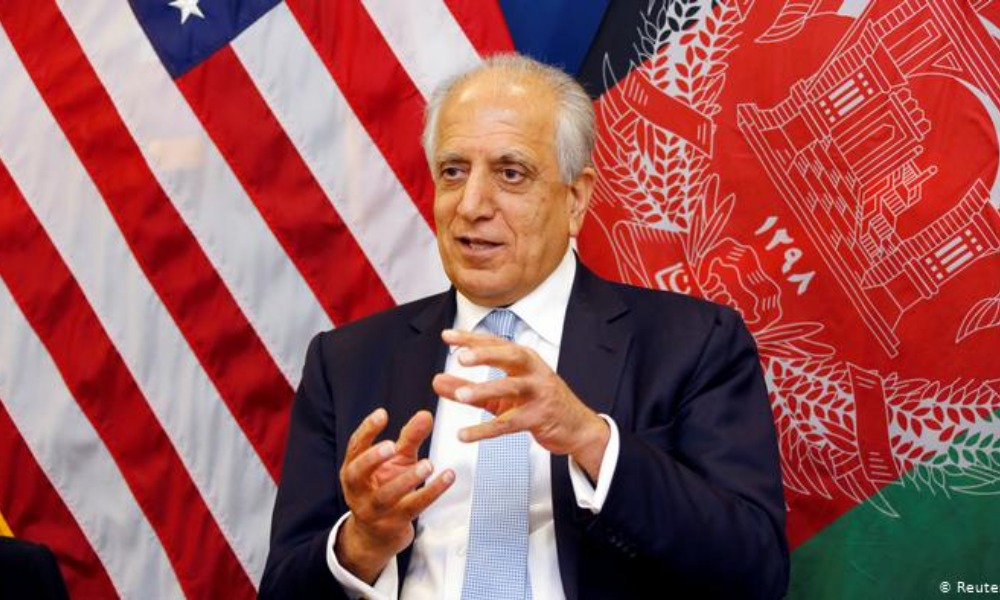Khalilzad wraps up regional trip, highlights need to keep republic intact

US peace envoy Zalmay Khalilzad said in a series of tweets he has wrapped up his latest trip – to Tashkent, Doha, Kabul, and Dushanbe – with a stop in Berlin – which was focused on building regional consensus on the Afghan Peace Process.
Khalilzad said there is “a unique international consensus for peace, rooted in the support for a negotiated settlement, an end to violence, and rejection of any attempt to impose a military solution”.
He said: “Afghan leaders from all sides of the conflict should seize this opportunity and negotiate a political settlement to end their 40 yearlong war.”
Khalilzad also stated that “if the Taliban do not choose peace, a future based on consensus and compromise, then we will stand with Afghans who strive to keep the Republic intact. Republic political unity is a must.”
“International consensus does not stop at peace. The world remains steadfast in its support of Afghanistan as the country enters a new phase,” Khalilzad said.
In addition to this, the US State Department also issued a joint communique by the US, the European Union, NATO, Norway and the UK on the Afghan Peace Process.
According to the communique, special envoys and special representatives of the United States of America, European Union, France, Germany, Italy, NATO, Norway, and the United Kingdom met in Berlin on Thursday where they exchanged views on the current status of the Afghanistan peace process and discussed ways to support the Afghan people’s desire for a just and lasting peace.
The participants confirmed that such a peace can only be achieved through an inclusive, negotiated political settlement among Afghans and highlighted the need to accelerate the pace of the Afghan-led and Afghan-owned peace negotiations and committed to work with the Afghan government and the Taliban, and other Afghan political and civil society leaders to reach a comprehensive and sustainable peace agreement and political compromise that ends the war.
The participants called for the immediate resumption, without pre-conditions, of substantive negotiations on the future of Afghanistan with the aim to develop and negotiate realistic compromise positions on power sharing that can lead to an inclusive and legitimate government and a just and durable settlement.
They also strongly condemned the continued violence in Afghanistan “for which the Taliban are largely responsible” and demanded all parties to take immediate and necessary steps to reduce violence and in particular, to avoid civilian casualties in order to create an environment conducive to reaching a political settlement.
Participants called upon the Taliban to stop their undeclared spring offensive, to refrain from attacks against civilians, and to stop immediately all attacks in the vicinity of hospitals, schools, universities, mosques and other civilian areas.
In particular, participants demanded an immediate end to the campaign of targeted assassinations against civil society leaders, religious scholars, journalists and other media workers, human rights defenders, healthcare personnel, judicial employees and other civilians.
The participants also reiterated that during the withdrawal of foreign troops, the safety of international forces must be ensured and that any Taliban attacks on the troops during this period will be met with a forceful response.
Participants stressed that the process of the troop withdrawal must not serve as an excuse for the Taliban to suspend the peace process and that good-faith political negotiations must proceed in earnest.
